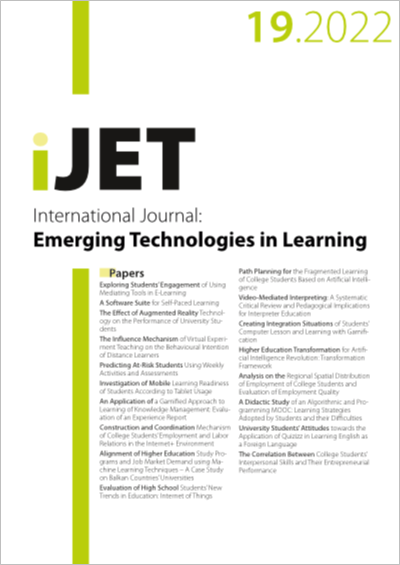Video-Mediated Interpreting
A Systematic Critical Review and Pedagogical Implications for Interpreter Education
DOI:
https://doi.org/10.3991/ijet.v17i19.31653Keywords:
video mediated interpreting, remote interpreting, distance interpreting, systematic review, interpreting trainingAbstract
To better understand the empirical findings on video mediated interpreting (VMI) and accordingly offer pedagogical implications, a systematic and critical review was conducted on 27 relevant studies published in established journals from 2005 to 2022. Three major findings were obtained. First, VMI studies have increased in number steadily since 2017, and VMI issues have been explored by researchers from various fields, such as translation studies, sociology, and medicine. Second, the VMI studies during these 17 years had both strengths and potential problems in their research designs. Third, VMI research centered upon six issues, including (1) time, (2) financial cost and benefits, (3) physical and psychological costs, (4) communication quality and users’ satisfaction, (5) acceptance, and (6) strategies. Based on the existing findings on these issues, pedagogical implications for interpreter education were discussed, in particular the importance of VMI practice and the use of strategies that facilitate VMI-based communication.
Downloads
Published
How to Cite
Issue
Section
License
Copyright (c) 2022 Yinghui LI

This work is licensed under a Creative Commons Attribution 4.0 International License.



